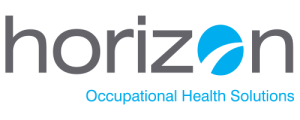
1) What was your first job?
I had a paper route from the time I was 8 years old that I shared with my brother but at 11 I started working at our local KFC as a cashier. I remember asking my dad for money one day for something trivial and his reply was well you better go get a real job. The next day I went out and did just that. I remember the KFC manager calling my mom to ask her permission, my mom replied if they had something I could do, why not!
2) Why did you decide to start working in Occupational Health/client experience?
As with most people who pursue a health care career, I wanted to help people. Growing up I loved being active and I played many sports. As I got older I found it really inspiring what Physiotherapy has to offer in the many ways that it helps athletes rehabilitate, and I quickly decided it would be a perfect career for me. As part of my undergrad in Physiotherapy, I did a clinical placement in Thompson, Manitoba. During that placement I encountered a range of injuries, many of which occurred as a result of physically demanding work. Helping these people remain at work and return to the activities that meant so much to their everyday lives was incredibly gratifying for me. Once I graduated, I was offered a job which I accepted of course, and just last month marked my 10 year anniversary with the company!
3) Tell us about what you do at Horizon.
As I mentioned earlier, I started working for the company as a Physiotherapist in 2008 directly following graduation. I was offered a role as a manager in the Physiotherapy Department in 2011, and then Associate Director in 2017. My role as Associate Director isn’t just about managing people, but rather it’s about striving daily to problem solve for our clients. I am lucky enough to lead an amazing team in Thompson that holds high motivation to help both patients and clients alike. We all enjoy our work and take great pride in what we do every day.
4) What brought you to where you are you in your role as Associate Director?
I like to think of myself as a highly motivated individual with a strong work ethic. I love business and health care and this role is the perfect mixture of both. Of course, it’s not without its challenges but that’s what keeps things interesting!
5) What is it about Occupational Health that you find interesting?
Occupational Health is a unique realm within healthcare. The variety from risk management to case management keeps things exciting. From prevention, to intervention, to case management all aspects of the journey hold interesting and evolving patient needs. To be honest, the diversity of within Occupational Health is part that retains my interest. The ability to successfully solve problems for the patient or client is a must in this role. Our team is remarkable at this. We have many forward thinking, motivated team members who make coming to work every day easy.
6) Tell us about an experience you’ve had where you felt that you made a significant positive impact on the patient or client organization.
Navigating the public healthcare system can be stressful for anyone. At our clinic, on the other hand, we pride ourselves on being a consistent and reliable source of healthcare services to our patients and clients. As a team we aim to both personally understand the unique challenges in Northern Manitoba, and offer solutions to patients and clients alike.
7) What is the most important piece of health advice that you give most patients? Personally, I think we need to get back to the basics when it comes to health. People need to more thoroughly understand the true value of nutrition, exercise and proper sleep. I think we are a bit too quick nowadays to prescribe medications to improve health problems rather than getting down to the core of the issue, which can commonly originate from poor nutrition, lack of exercise or inadequate sleep. When these 3 things are invested in daily and made to be priorities in healthcare across the population, that’s when we’ll see drastic improvements. Similarly, I think people need to be better informed that they can take responsibility for their own health. I see many patients, for example, who don’t know why they’re on a specific medication or what it’s even for. Ask questions to gain the understanding you need to be in charge of your own health. Knowledge is power.
